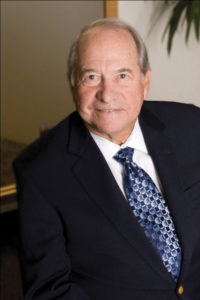Atlantis
Abraham
Abraham is generally accepted as the Hebrew patriarch of the Abrahamic religions, Judaism, Christianity and Islam, possibly living in the 2nd millennium BC. The name Abraham and its variants has been identified(a) in many cultures, although the existence of Abraham as a real historical person has been disputed.
Nevertheless, there have been a number of efforts to connect Abraham with the religion of ancient India(b) . The most publicised proponent of this view is Gene Matlock who offered his evidence in a paper titled Who was Abraham?(c)
He begins this document with three citations from ancient sources;
“In his History of the Jews, the Jewish scholar and theologian Flavius Josephus (37-100 A.D.), wrote that the Greek philosopher Aristotle had said: “…These Jews are derived from the Indian philosophers; they are named by the Indians Calani.” (Book I:22.)
Clearchus of Soli wrote, “The Jews descend from the philosophers of India. The philosophers are called in India Calanians and in Syria Jews. The name of their capital is very difficult to pronounce. It is called ‘Jerusalem.'”
“Megasthenes, who was sent to India by Seleucus Nicator, about three hundred years before Christ, and whose accounts from new inquiries are every day acquiring additional credit, says that the Jews ‘were an Indian tribe or sect called Kalani…'” (Anacalypsis, by Godfrey Higgins, Vol. I; p. 400.)”
Matlock believes that India ruled our prehistoric world including parts of America and furthermore. that Atlantis was located in South-East Mexico at San Lorenzo Tenochtitlan [0472]. In an attempt to link his Mexican location with Plato’s description of Atlantis, Matlock contends that the ‘elephants’ mentioned by him were the long-snouted tapirs of Meso-America!(e) Furthermore, he claims that there was a connection between India, the Phoenicians, Atlantis and Mexico.
However, Matlock by way of clarification added “My readers should know that the ‘Atlantis’ described in this book may not be the same as Plato’s ‘Atlantis’. I’m just proving that there was once a part of the world called ‘Atlantis’ – that a part of Mexico once had the Sanskrit name Atlán, Tlan or Toltán, whose citizens were known as Atlantecas and Atlantl.” He then continues with “if my ‘Atlantis’ is not the real ‘Atlantis’ no one will ever find the one Plato mentioned.”
Matlock’s widely quoted internet article(c) begins with the identification of Abraham and his wife Sarai with the Hindu god Brahma and his wife Saraisvati.
In 2000, Matlock published Jesus and Moses Are Buried in India, Birthplace of Abraham and the Hebrews[0473], in which he develops this theme further.
A book supporting Matlock by the controversial Sri G. Ananda (Gregory Alexander) entitled Brahma: The God of Abraham [1187] was published in 2014. However, the idea is hotly debated on the internet by all interested parties, Christian, Muslim and Hindu.
Roger M. Pearlman tackled the subject of Atlantis in Plato’s Atlantis Legend Resolution: Abraham is the Real Atlas [1596]. Apart from the unexpected identification of Abraham, he also equates Hercules with the biblical Samson and places the Pillars of Hercules at Gaza. Disturbingly, he suggests that Sodom can be identified as Atlantis. Then, for good measure, he maintains that Göbekli Tepe was founded by Noah‘s family!
Jason Colavito had a critical view(d) of the recent (2017) Turkish documentary, supported by the government, which claims that Göbekli Tepe was built by Telah, Abraham’s father, and destroyed by Abraham.
(a) So Many Abrahams by Hiberia (archive.org)
(b) WELCOME TO AUM-SHALOM.COM (archive.org)
Moore, Tom T.
Tom T. Moore is an American self-help author and self-declared telepath, who has written on a variety of  subjects including Atlantis and Lemuria(a). He conventionally places Atlantis in the Atlantic Ocean and Lemuria in the Pacific. According to Moore, Atlantis was destroyed by a natural disaster 31,000 years ago and again 12,500 years ago as a result of a war!
subjects including Atlantis and Lemuria(a). He conventionally places Atlantis in the Atlantic Ocean and Lemuria in the Pacific. According to Moore, Atlantis was destroyed by a natural disaster 31,000 years ago and again 12,500 years ago as a result of a war!
Lemuria was larger than Australia and was formerly connected to Japan and for thousands of years was an idyllic place with its inhabitants vacationing in Hawaii!
However, Lemuria, also known as Mu, destroyed itself in an atomic war 7,500 years ago.
This ‘male cow effluent’, is expanded on in his Atlantis & Lemuria: The Lost Continents Revealed [1556].
(a) Atlantis & Lemuria—Latitudes & Longitudes | Ancient Code (archive.org)*
Schwamm, Daniel
 Daniel Schwamm is a German commentator who has advocated the idea that a landmass between Europe and America in the Atlantic is the location of Atlantis(a).
Daniel Schwamm is a German commentator who has advocated the idea that a landmass between Europe and America in the Atlantic is the location of Atlantis(a).
His 2012 paper, which is taken from a 1995 book is unconvincing, involving as it does the Bermuda Triangle, the migration of Azorean lobsters and the Nasca geoglyphs.
(a) https://www.daniel-schwamm.de/index.php?pg=texte/atlantis.htm
Houvellique, M. L.
Fisher, R.K. & Martini
R.K. & Martini Fisher are the authors of Time Maps[1372], in which they outline the chronology of human development. They touch briefly on the subject of Atlantis and concluded that if Plato’s date of 9600 BC for its demise is correct, then Spartel Island would be the best candidate for its location.
Flambas, P.P.
P. Philip Flambas is the Australian author of Plato’s Caribbean Atlantis[1368]. The self-explanatory title makes Dr Flambas’ objective clear. The book was published in Australia and is a hefty 932 pages and is also available as a Kindle ebook. The book is so enormous that a full critique would require another book. He outlined his theories on the Ancient Origins website(b).
In my opinion, the book has many flaws and is just a case of quantity masquerading as quality. One of my first gripes is that the author places Atlantis in the 10th millennium BC, a period during which there is NO archaeological evidence for any structured societies in either Egypt or Athens.
Even more ridiculous, is his suggestion that the Atlantean Empire was centred in the Caribbean and included what are now the U.S. states around the Gulf of Mexico, all of Mesoamerica and all the countries along the northern coast of South America. Then realising that Plato had also described Atlantean territory that included parts of Europe and North Africa, Flambas added them as well for good measure. Flambas accepts that the Atlantean territory included parts of Europe and North Africa but that, apparently unknown to Plato, the capital of this empire was in the Caribbean! I don’t find that credible, but readers will have to decide for themselves.
Eleven millennia later, Europe could not keep control of its American colonies even with improved navigation, vessels and weaponry, so how did his Caribbean Atlantis manage the control of its European territory?
Furthermore, Flambas is incorrect in saying that Plato noted that part of Atlantean territory extended as far as the Tyrrhenian Sea, in fact, he said that they controlled as far as Tyrrhenia (Timaeus 25b & Critias 114c), in other words, they held part of southern Italy. Even without that, if parts of the Western Mediterranean had been occupied by Atlanteans from the Caribbean, it is hard to believe that some knowledge of the existence of the Americas was not well known throughout the whole Mediterranean region, sailors not being known as the most tight-lipped people. But Flambas claims that this knowledge was not available to Europeans until Columbus, eleven thousand years.
Flambas has a large section on empires and their development through the occupation of contiguous territory, which I fully agree with, yet he proposes that these ancient Atlanteans preferred to expand across the wild Atlantic to colonise the Mediterranean rather than the easier option of pushing either north into North America or south into the equally valuable South America with shorter supply lines. Expansion across the Atlantic makes no sense.
On a more positive note, as a layman, I think that Dr Flambas has done creditable original work with his “Hydraulic Hypothesis” which relates to a modification of our view of Plate Tectonics. The extensive geological research carried out by him is admirable, but for me, his attempt to link it with Plato’s story of Atlantis is just a speculation too far.
Finally, his book is well illustrated, but to produce a volume of this size without an index is unforgivable. I was also disappointed to find that much of Flambas’ Chronology of Atlantis Theories was copied from this site, including errors, without any attribution!
Flambas has also written on the debate surrounding the abrupt ending of Plato’s Critias(a). He concluded that “rather than Plato leaving the Critias unfinished, a more likely explanation for its abrupt ending is that it was once complete and the remainder was lost, as were thousands of other Ancient Greek literary works. That loss may also include the Hermocrates dialogue, which was possibly the first or final part of a trilogy, or yet another dialogue that would have created four related dialogues.”
In a subsequent online discussion(a) about Flambas’ paper, the most salient opposing comment came from Thorwald C.Franke who proposed that Critias was never finished and “the Hermocrates wrote since there are not any other testimonies from ancient authors. All the other dialogues have left traces in ancient literature.”
>Flambas has produced a trilogy of videos to augment his book. Part 1 is now available on the academia.edu website(c).<
(a) (99+) Discussion: The Incomplete Critias.docx – Academia.edu
(c) (99+) Plato’s Atlantis – Part 1 The Atlantis Story | Photios Flambas – Academia.edu *
Red-Haired People
Red-Haired people constitute 1-2% of the human population and are today to be found most frequently in northern and western Europe with their greatest numbers in Scotland.
In the very distant past, red hair has been depicted in ancient Egypt, red-haired people have been featured in the mythologies of both the Americas, where many red-haired mummies have been found. 4,000-year-old red-haired Caucasian mummies have been found as far as western China, highlighted by Elizabeth Wayland Barber in The Mummies of Ürümchi[1350].
A website(d) dedicated to the subject of red hair has some strange stories to relate including the claim(e) that red hair is evidence of an Atlantean Diaspora!
Lara Lamberti, the French actress and author, has written a series of articles(a,b,c) in which she endeavours to link a red-haired race with Atlantis!
(a) https://www.messagetoeagle.com/the-red-haired-race-and-the-atlantean-connection/
(b) https://www.messagetoeagle.com/redhairedgiantsatlantis_part2.php#.WDVj_cto1ow
(c) https://www.messagetoeagle.com/redhairedgiantsatlantis_part3.php#.WDVisMto1ow
(d) https://www.themythsandhistoryofredhair.co.uk/index.html
(e) https://www.themythsandhistoryofredhair.co.uk/aliensatlantis.html
Vergottis, Andreas
Andreas Vergottis (1961- ) was born in Greece, schooled in Athens, followed by further education in the UK at the LSE  and City University Business School, London. He is currently head of research with a fund management company.
and City University Business School, London. He is currently head of research with a fund management company.
As an amateur archaeologist and student of Homer, he has now written a book with the intriguing objective of demonstrating that:
“Lost Atlantis = Homeric Ithaca = Sea Peoples centre = Kefalonia”.
The book will be available in English and Greek and any publication developments will be posted here. In the meantime there is more information on his Facebook page.
Luongo, Marilyn
Marilyn Luongo is a South African entrepreneur involved in social projects there(b). Her website has an unexpected section dealing with the history of the Middle East(a) of which the second half involves a review of Plato’s Atlantis account. She attempts to link Mesopotamia with Atlantis, beginning with locating the ‘Pillars of Heracles’ at the Strait of Hormuz and then using the highly controversial interpretation of ‘meizon‘ meaning ‘between’ rather than ‘greater’ she proceeds to argue that Mesopotamia is ‘between’ Asia and Libya and therefore is the home of Atlantis!>She cited a paper by Andreea Haktanir who supported this interpretation of meizon(c).<
(a) https://web.archive.org/web/20201025223607/https://www.middle-east.mavericsa.co.za/history.htm
(b) Founder’s Page (archive.org)
(c) History (archive.org) *
Countryman, Jack
 Jack Countryman is the author of many books with Christian themes. He also wrote Atlantis and the Seven Stars[1312] in which he expressed qualified support for some of Ignatius Donnelly’s theories,*although, he identifies Atlantis as the biblical Tarshish.
Jack Countryman is the author of many books with Christian themes. He also wrote Atlantis and the Seven Stars[1312] in which he expressed qualified support for some of Ignatius Donnelly’s theories,*although, he identifies Atlantis as the biblical Tarshish.
However, for me, his book is marred by his promotion of the idea of genetic manipulation by extraterrestrials from the Pleiades (the seven stars in the book title).*
